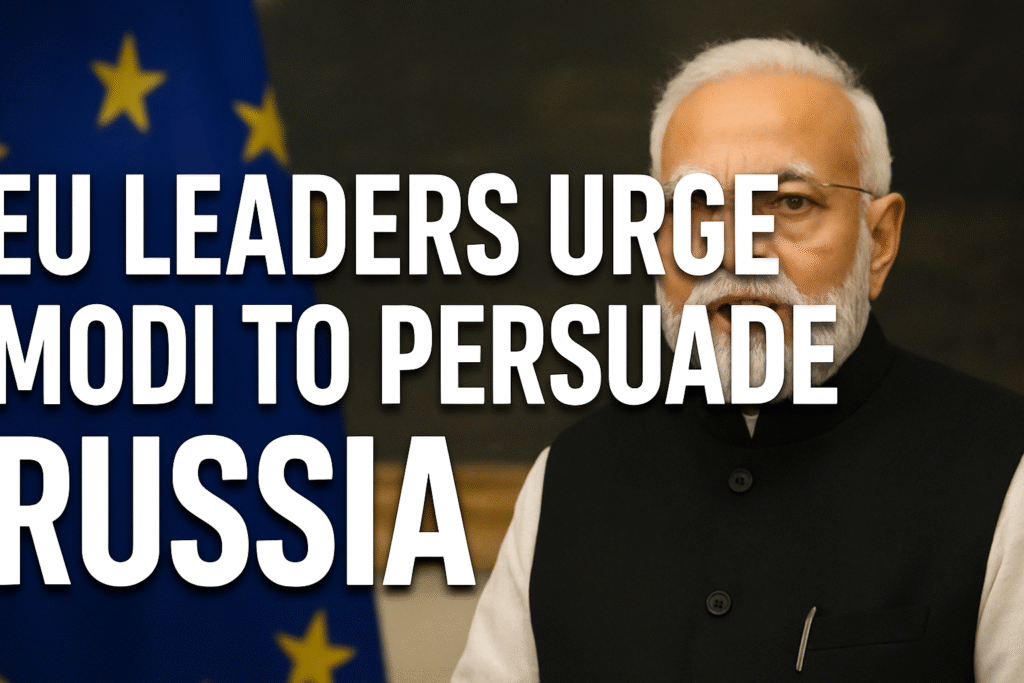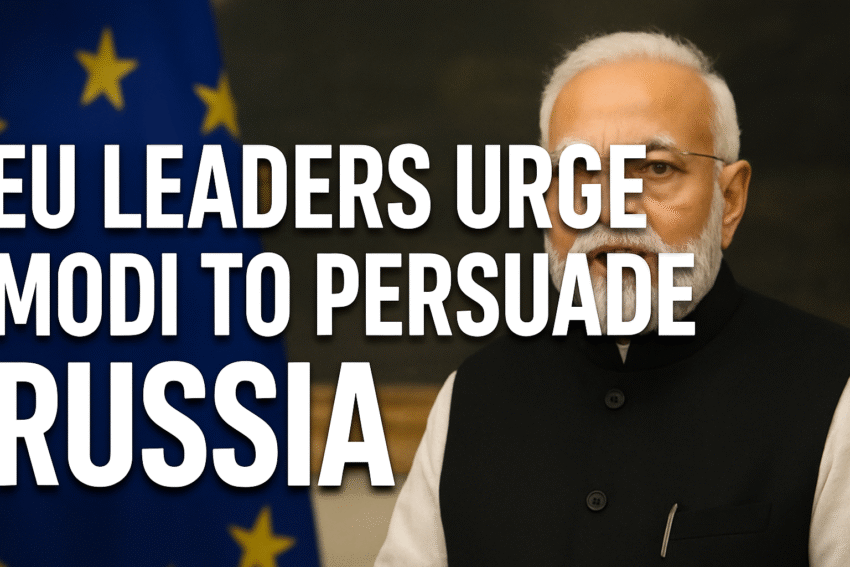
New Delhi/Brussels, September 5 – In a significant diplomatic move, EU leaders urge Modi to persuade Russia to end the ongoing Ukraine war. Top European leaders directly reached out to Indian Prime Minister Narendra Modi, asking him to use his influence with Moscow to push for dialogue and peace.
This outreach reflects Europe’s acknowledgment of India’s growing global role and its ability to act as a bridge between East and West during one of the most complex conflicts of the century.
EU Leaders Urge Modi to Persuade Russia
European Commission President Ursula von der Leyen and European Council President Charles Michel held a detailed discussion with Modi, emphasizing the urgent need to stop hostilities in Ukraine.
The European leaders stressed that Modi, who enjoys credibility with both Vladimir Putin and Western powers, is in a unique position to nudge Moscow toward peace.
“India is a country that commands respect on the global stage. Prime Minister Modi’s words carry weight in Moscow, and that is why EU leaders urge Modi to persuade Russia to consider negotiations,” said a joint EU statement.
India’s Balancing Act
Since the outbreak of the Ukraine war, India has maintained strategic autonomy. New Delhi has not openly condemned Russia but has consistently called for dialogue and diplomacy.
While India continues to import Russian crude oil and defense equipment, it has also deepened ties with the United States, the EU, and other Western partners. Modi’s famous remark, “This is not an era of war,” has been quoted by global leaders, including at the UN and G20 summits.
This careful balancing act is precisely why EU leaders urge Modi to persuade Russia – India can talk to both sides without being dismissed as partisan.
Why Europe Needs India
For Europe, the war has brought devastating consequences. Apart from the humanitarian toll in Ukraine, the conflict has driven up energy costs, disrupted trade, and raised defense budgets.
Unlike Western countries that have cut ties with Moscow, India has retained open communication channels. This makes New Delhi an attractive partner for mediation.
“India is respected in Moscow and has growing ties with Europe. That is why the EU leaders urge Modi to persuade Russia – he may be the only leader who can reach Putin,” noted a Brussels-based analyst.
Modi’s Expanding Global Role
Over the last two years, Modi has emerged as a key player in international diplomacy. From engaging with the U.S., EU, and Japan, to maintaining close dialogue with Russia and leading the Global South, Modi has positioned India as a central voice in global affairs.
During India’s G20 Presidency, New Delhi successfully built consensus on key issues despite sharp geopolitical divides. The EU’s appeal reflects the trust placed in Modi’s ability to engage even the most difficult actors.
Challenges in Persuading Russia
Despite the appeal, persuading Russia will be far from easy. Moscow insists it will not withdraw until its strategic objectives are achieved, while Kyiv demands a complete Russian pullout before talks can begin.
Analysts suggest that while Modi can push for dialogue, he cannot guarantee a breakthrough unless both sides show readiness to compromise.
“EU leaders urge Modi to persuade Russia, but even Modi’s influence has limits. Unless Kyiv and Moscow show flexibility, peace will remain distant,” said an international relations expert.
Global Reactions
The EU’s outreach to Modi has sparked debate worldwide. Western commentators see India as a potential bridge-builder. Ukrainian officials cautiously welcomed India’s possible role but stressed that sovereignty and territorial integrity cannot be compromised.
Meanwhile, Moscow has so far welcomed India’s neutral position, appreciating its refusal to join Western sanctions. This delicate balance gives Modi leverage that few other leaders enjoy.
What Lies Ahead?
Whether EU leaders urging Modi to persuade Russia will lead to meaningful results remains uncertain. However, the move underscores how India is no longer just a regional player – it is a global power broker.
If Modi succeeds in opening channels for peace, it could mark a historic moment for Indian diplomacy. If not, the appeal itself signals a new reality: the world looks to India for solutions to global crises.

